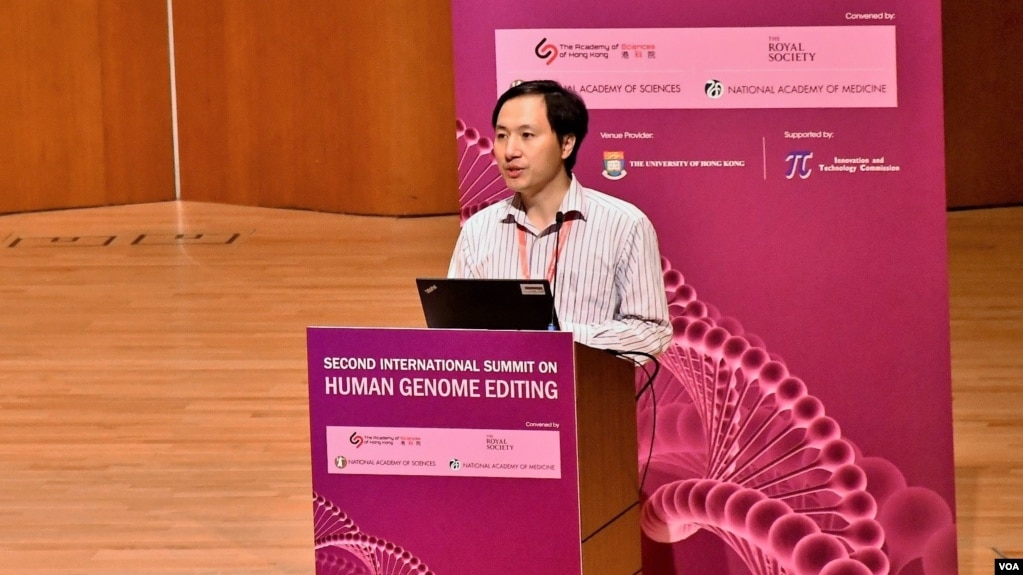Science, ethics, ideology, and politics all clash fiercely over an innocent-sounding topic: the “designer baby”. This battle has loomed unusually large in the public view after a recent announcement that a Chinese scientist intentionally used a controversial genetic engineering technique on a set of viable human embryos, a global first. There are a number of fascinating perspectives to explore, and this story comes with a sprinkling of geopolitical intrigue as well.
In November of 2018, scientist He Jiankui announced that he had used a burgeoning gene editing tool, CRISPR-Cas9 (or just CRISPR, for short), to genetically modify two twin girls. He claims to have used this tool in an attempt to confer genetic resistance to HIV/AIDS by disabling one particular gene, CCR5. CRISPR, while extremely promising, is still quite poorly tested, and has been proven capable of deleting much larger swaths of genetic material than intended. The main concern is that these deletions could eliminate sections of a cell’s genetic code that are crucial for its normal functions, which could lead to problems such as cancer. There is also a concern that catastrophic errors could be transferred genetically to descendants.
Molecular biologist Ellen Jorgensen explains CRISPR-Cas9’s mechanics and potential.
Source: TED
Unsurprisingly, then, He’s announcement was met with widespread backlash from the scientific community. An official investigation showed that He fabricated ethics approvals in order to recruit participants for his experiment, and he was subsequently fired from his university. Because of its dangers, many countries (including China) have prohibited gene editing of human embryos for reproductive purposes.
However, He’s situation may not have been quite what it seems. He has been painted as a rogue agent, pursuing his research in relative secrecy in pursuit of fame or notoriety. His university, the hospital where the edited twins were born, and even his own government denounced his actions. Suspiciously, though, the Washington Post noted that, in an interview with the Associated Press, an executive from that same hospital applauded He’s research on camera, and the university was listed as a sponsor on a copy of the informed consent form He used for his experiment. Furthermore, CCR5, the gene He attempted to modify, is associated with memory and cognition, meaning that the modified twins may exhibit augmented intelligence.

He Jiankui speaking at the Second International Summit on Human Genome Editing. Source: Iris Tong (Voice of America)
Is it possible that the Chinese government is covertly supporting or encouraging unethical genetic engineering practices? Dr. Gregory Licholai of Yale’s School of Management notes that China has been much quicker than other countries to expedite human trials of CRISPR-enabled cancer treatments, and that China’s regulatory authorities have been “extremely permissive” regarding CRISPR clinical trials.
The genetic modification of humans carries enormous risks and rewards. With enough skill and some good luck, a country that supports early adoption of human gene editing could claim significant health and intellectual advantages over the rest of the world within a generation. Only time will tell if November’s announcement quietly ushered in a new age of geopolitical competition.
— Ricky C.
